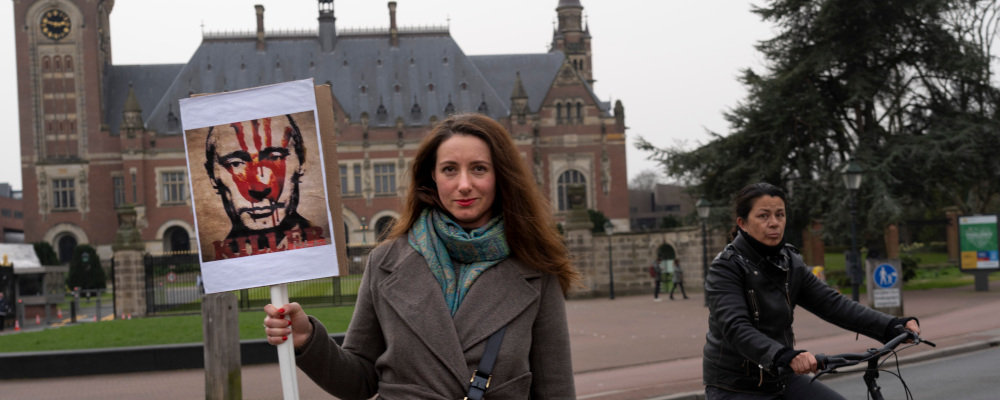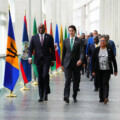One of the biggest challenges—admittedly surmountable—with being an aspiring conservative politician is that we want less of what it is we are trying to run, which is to say, government.
This is true in two different, but related, ways. In the first place, conservatives generally believe less government is preferable to more government. For example, if given a choice between the government designing, building, and running national childcare institutions from the top down or a generous tax credit that puts more money into the hands of parents, conservatives will generally favour the latter over the former. Indeed this was a central policy clash in the 2006 election between Paul Martin and Stephen Harper. Stephen Harper so convincingly won that debate that Justin Trudeau now points to his 20 percent boost and reshuffle of Stephen Harper’s cash to parents as a central accomplishment. (Worth noting that Trudeau’s childcare plan“Ontario on Monday signed onto a national child-care agreement with the federal government to bring $10-a-day child care to every province and territory by 2026, making it the last jurisdiction to do so.” https://www.cbc.ca/news/canada/childcare-agreements-canada-provinces-territories-1.6400123 is currently about one-quarter of the cash we send to parents).
A corollary is that while Liberals (and their New Democrat minions) run around telling us all what great things they intend to “do,” Conservatives should run around the country telling us things they intend to “undo.” For example, Stephen Harper campaigned on undoing the Paul Martin’s Kelowna Accord (an expensive and very vague set of promises to Canada’s aboriginal communities), undoing then-existing childcare accords with a few provinces, and undoing our signature on the Kyoto Accord (which Paul Martin had signed but had done virtually nothing to try and meet). He became Prime Minister and undid all three.
In the second place, conservatives believe that, when the government is needed, programs are best delivered by the lowest level of government that can meet that need. So while the Liberals make it sound as if Ottawa will design, build and run the new childcare program, Conservatives know that provinces will actually do so. Further, conservative provincial governments should try to find ways to push the design, building, and running of childcare programs down to communities, rather than centrally plan them from the provincial level. And while the Liberals have traditionally made all sorts of noises about how they would improve health care, Stephen Harper focused on what the federal government actually did—transfer cash—and treated everything else around health care with benign neglect.
And Canadian conservatives have an enormous advantage on this front due to a province that, for reasons of their unique French language and culture, simply wants to run more of its own affairs. To say nothing of other wealthy and perpetually alienated provinces who would be equally happy to do the same. Quebec, and to a much lesser extent the West, has been a powerful and important brake on the Liberal (with their NDP minions) temptation to run everything from Ottawa. This is a conservative advantage…or it can be: Harper’s benign neglect drove support for Quebec independence to decades-low levels.
In short, conservatives want smaller government delivered as locally as possible. When Conservatives see bad government—something we are admittedly predisposed to see—they should ask “Is there something we should undo?” Or “Is there a lower level of government that should do this instead?”
Instead, too often Conservatives ask, “How can we use the power of government to fix that bad government? Or, “How can we use the power of government to bend a lower level of government to our will?” This is just throwing big government after bad.
It’s admittedly a difficult temptation to resist.
When we see smaller municipalities duplicating services, conservatives give in to the temptation to look down and amalgamate municipalities into one bigger superstructure. Same thing when it comes to centralizing health care and/or education delivery rather than letting local health regions or locally elected school boards meet local conditions. All are throwing big government after bad.
When Conservatives see young able-bodied Canadians on welfare, they should ask how to make it more difficult for those young Canadians to access welfare. Instead, Conservatives have designed an entire bureaucracy to track and develop government-sponsored or created work for these individuals—workfare. Throwing big government after bad.
All of this takes me to what some Conservatives are saying in the debate over housing policy. I’m sorry to take so long to get to my point, but I needed a refresher on (a) what Conservative principles are and (b) the fact that those principles sometimes work.
There are a few things Canadian governments are doing that are contributing to the massive, and terribly problematic, run-up in house prices in some Canadian markets.
In the first place, we are allowing a large influx of immigrants into the country.Immigration and Ethnocultural Diversity Statistics This is an unadulterated good. Canadians are not having enough babies (that’s admittedly my conservative judgement) and immigrants are a massive net contribution to our country in a myriad of ways that far outweigh the impact on house prices. Conservative response? Do nothing. Or maybe increase immigration. Or encourage more babies.
In the second place, the continued historically low level of interest rates“The Bank of Canada will likely consider another half-percentage-point rate increase in its next policy decision, as ‘too-high’ inflation potentially nears its peak, Governor Tiff Macklem said on Monday, though he did not rule out an even larger move. The Canadian central bank made the rare move of raising its key policy rate by 50 basis points (bps) earlier this month, lifting it to 1.0% from 0.5%. It’s next policy decision is on June 1.” https://ca.finance.yahoo.com/news/bank-canada-act-forcefully-inflation-152656738.html—which has been absolutely necessary given our broader economic and pandemic realities—have driven cash into asset classes like housing and equities. That drives prices up. But interest rates are the sole instrument to address inflation—a sizeable portion of which is being driven by house prices. So while higher interest rates are welcome to tamp down housing demand, the driver for interest rate policy should be the overall anticipated level of inflation, not the level of house prices alone. Conservative response? Leave this to the Bank of Canada.
In the third place, the federal government (and some provinces) have been shovelling cash into the hands of some homebuyers, particularly new ones, with various incentives and grants.“The First-Time Home Buyer Incentive is a shared-equity mortgage with the Government of Canada. It offers: 5% or 10% for a first-time buyer’s purchase of a newly constructed home; 5% for a first-time buyer’s purchase of a resale (existing) home; 5% for a first-time buyer’s purchase of a new or resale mobile/manufactured home” https://www.cmhc-schl.gc.ca/en/consumers/home-buying/first-time-home-buyer-incentive In short, really bad government is making a significant problem worse. It should be a very simple matter to show that these programs are benefitting either very rich people in expensive markets in parts of Ontario (Toronto and environs) and British Columbia (the lower mainland and Kelowna) who still need massive down payments or people who almost certainly don’t need them in cheaper markets. Conservative solution? Undo these programs. Heave them into the dumpster. And whatever you do, don’t create more of them!
Politically, we have an entire generation of baby boomers that are sitting on massive, externally generated assets—especially housing, but also equity investments. This is contributing not only to massive inter-generational inequities but also massive regional inequities. Canadians in the markets noted above are, through no fault other than picking the right place to live, becoming significantly richer than Canadians who don’t live in those regions. Should some of the massive benefits baby boomers have voted for themselves be somehow offset by the implicit rental income on their million-dollar homes? Perhaps OAS and the age benefit should be tempered by those implicit rents in homes above the Canadian average. Let me make this explosive suggestion even more explosive by pointing out that this transfer of wealth is also largely occurring to the benefit of those who tend to vote Liberal (and their NDP minions) to the detriment of those who do not. Conservative response? A close and trepidatious examination of who, exactly, is benefiting from this transfer of wealth…and who isn’t.
Finally, there is a myriad of issues at both the provincial and municipal levels, particularly the latter, that are preventing enough houses from being built. I have neither room nor inclination here to get into all the ways provinces, but mostly municipalities, are messing this up. The critical thing is that these are issues at the provincial and municipal levels. Federal Conservatives should therefore resist throwing a big federal government at bad municipal government.
And not just on principle. Can you imagine how the Montreal city council will react to a Conservative government trying to tell them how to do zoning? Or how a Calgary city council would react to a Liberal government doing something similar (preferential zoning for federally constructed childcare spaces!)? Do Conservatives think they can interfere in southwestern Ontario and in the Lower Mainland and Kelowna in B.C. but not in Winnipeg, Quebec City, and Halifax, where these are not nearly as serious issues? Please Conservatives, do not throw big government after bad. Conservative solution? Run for Mayor. Or perhaps the premier of Ontario or B.C.
The challenge with having principles in politics is that you have a constraint your opponents simply don’t. In normal times, federal Conservatives and federal New Democrats face these constraints from different ends of the ideological spectrum. But just because the New Democrats traded their ideology for a small pot of populist potage doesn’t mean Conservatives should do the same.
Recommended for You

The Weekly Wrap: It’s time to cut through Chesterton’s Fence and implement sweeping reform in Canada

Has the Left lost its masculine energy?

The Week in Polling: Young Canadians delay milestones due to high costs, Liberals lose the youth vote, and most Canadians fear a Trump-Vance White House

Ginny Roth: J.D. Vance, Pierre Poilievre, and how they slice their economic pie








